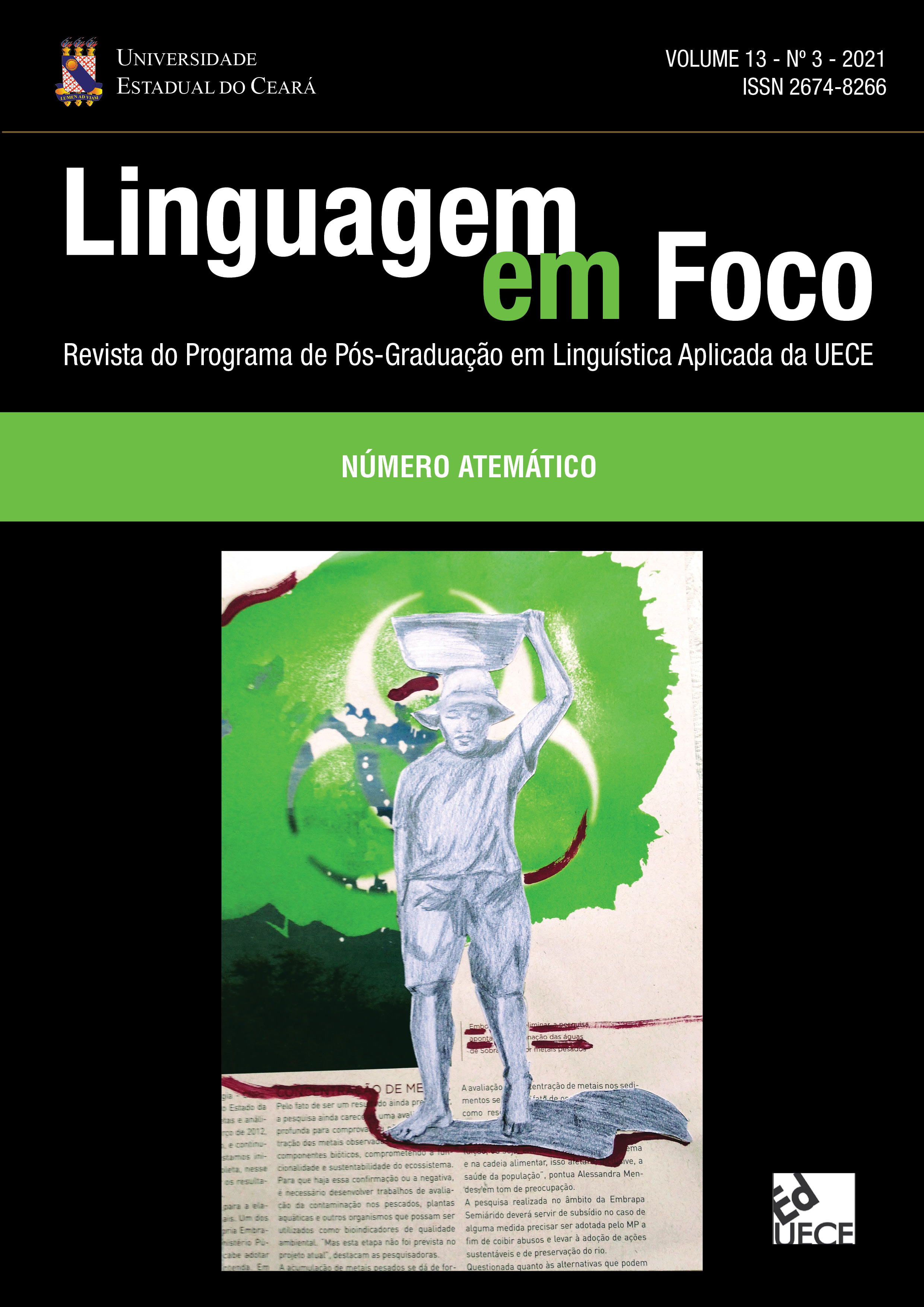A tradução como método de ensino da Língua Portuguesa a estudantes japoneses
DOI:
https://doi.org/10.46230/2674-8266-13-5026Palavras-chave:
Tradução, Ensino, Língua portuguesa, Competência comunicativaResumo
A tradução como atividade de língua estrangeira (LE) ocupou, por muito tempo, uma posição de desprestígio em sala de aula. Em décadas mais recentes, contudo, houve o surgimento de novas ideias que defendem a reintrodução da atividade tradutória com um foco comunicativo. Dessa maneira, este trabalho, que se originou de uma pesquisa de doutorado da Universidade de Estudos Estrangeiros de Tóquio (TUFS), procura trazer à luz a questão da tradução como uma ferramenta para auxiliar os alunos japoneses de graduação no estudo da língua portuguesa. Tendo como base as ideias defendidas por House (1977), Harmer (2007) e Altar (2017) sobre o uso da tradução no ensino de LE, lançou-se a proposta de criar um minicurso com o intuito de trabalhar com atividades de tradução de quadrinhos com foco no desenvolvimento da competência comunicativa. Por meio de discussões sobre pontos específicos em sala, foi possível trazer aos alunos elementos culturais e linguísticos que se revelam importantes para uma comunicação eficaz com falantes brasileiros. As atividades forneceram dados que melhor sustentam a narrativa da tradução como um método que auxilia de maneira eficiente o aprendizado do português, fornecendo aos aprendizes japoneses um conhecimento maior a respeito de diferenças culturais e linguísticas, diminuindo, assim, possíveis mal-entendidos durante o processo comunicativo.
Palavras-chave: tradução; ensino, língua portuguesa; competência comunicativa.
Downloads
Referências
ARTAR, P. The role of translation in foreign language teaching. 2017. 260 f. (Doutorado em Estudos Culturais) – Universitat Rovira I Virgili, Tarragona, Itália, 2017. Disponível em: https://www.tdx.cat/bitstream/handle/10803/461885/TESI.pdf. Acesso em: 30 jan. 2020.
CARRERES, A. 2006. Strange bedfellows: Translation and language teaching. In The teaching of translation into L2 in modern Languages degrees, uses and limitations. Sixth Symposium on Translation, Terminology and Interpretation in Cuba and Canada: December 2006. Canadian Translators, Terminologists and Interpreters Council. Disponível em: http://www.cttic.org/ACTI/2006/papers/Carreres.pdf. Acesso em: 03 mar. 2020.
FRANCO, M. A. Pedagogia da Pesquisa-Ação. Revista Educação e Pesquisa. v. 31, n. 3, p. 483-502, São Paulo, set./dez. 2005.
HELTAI, P. Teaching vocabulary by oral translation. ELT Journal. Oxford: OUP
p. 289-293, 1989.
HARMER, J. The Practice of English Language Teaching (4th ed.). Pearson
Education, 2007.
HOUSE, J. Acquiring translational competence in interaction. In: J. House & S. Blum-Kulka,1986.
HOUSE, J. A Model for Translation Quality Assessment. Tubingen: TBL Verlag Gunter Narr, 1997.
Publicado
Como Citar
Edição
Seção
Licença
Copyright (c) 2021 Abimael Maciel Marques

Este trabalho está licenciado sob uma licença Creative Commons Attribution 4.0 International License.
Os autores que publicam na Linguagem em Foco concordam com os seguintes termos:
- Os autores mantêm os direitos autorais e concedem à revista o direito de primeira publicação. Os artigos estão simultaneamente licenciados sob a Creative Commons Attribution License que permite a partilha do trabalho com reconhecimento da sua autoria e da publicação inicial nesta revista.
- Os conceitos emitidos em artigos assinados são de absoluta e exclusiva responsabilidade de seus autores. Para tanto, solicitamos uma Declaração de Direito Autoral, que deve ser submetido junto ao manuscrito como Documento Suplementar.
- Os autores têm autorização para disponibilizar a versão do texto publicada na Linguagem em Foco em repositórios institucionais ou outras plataformas de distribuição de trabalhos acadêmicos (ex. ResearchGate, Academia.edu).





























